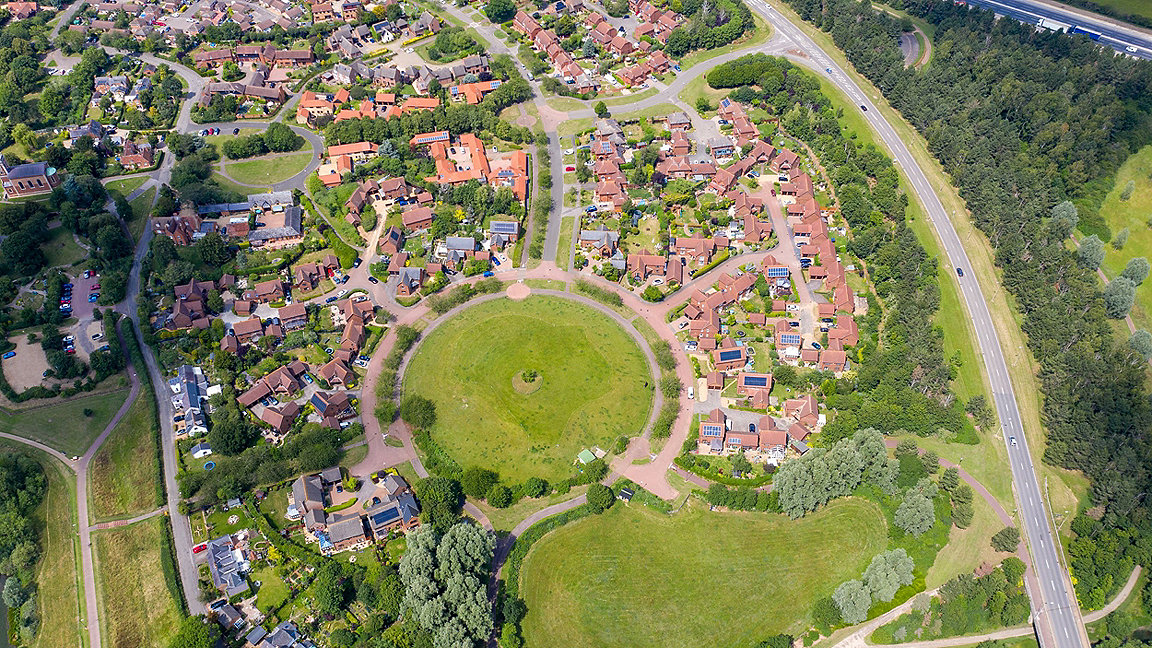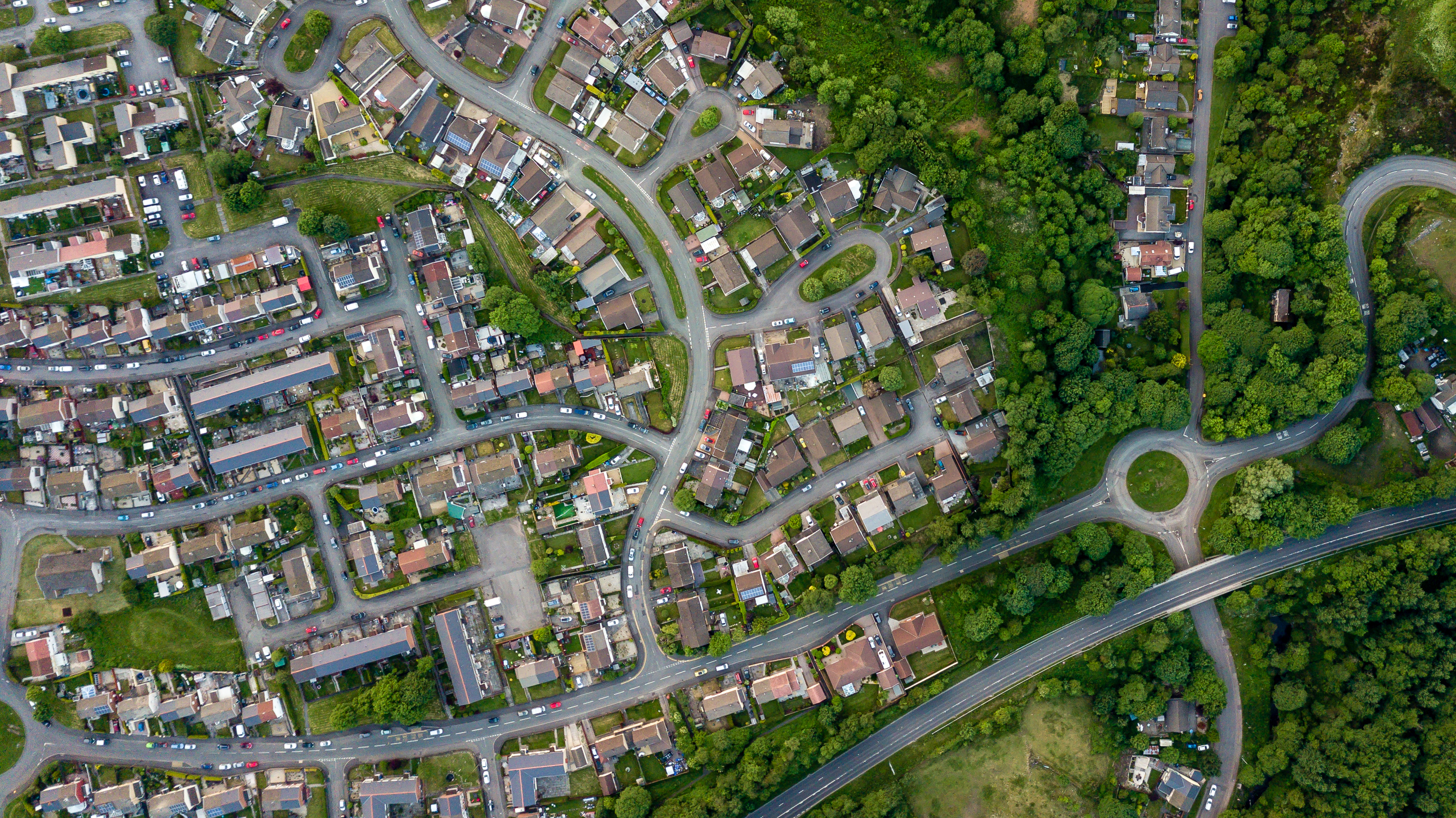
Project consultancy KAM specialises in the industrial, commercial and real estate sectors, with a strong focus on sustainability. But it was not until 2020 that we had occasion to reflect on our own environmental impact.
Sustainability has always been high on our agenda, prompted by client requirements and our own desire to reduce the firm's environmental impact.
But one of our key industrial clients was using PlanetMark's third-party accreditation to calculate, reduce and offset carbon emissions during the construction phase of a project, and it was through this on-site interaction that we became aware of the scheme.
The accreditation process focused the whole construction team on achieving a net-zero project.
The team had to collaborate to predict the likely emissions, investigate carbon reduction methods, and then monitor and record the actual emissions during the construction phase.
Accreditation supports emission ambition
KAM employees cover a considerable distance by car on business each year. But we were keen to address this and reduce the associated emissions.
We found that applying for business certification under the PlanetMark scheme would commit us to reduce our emissions by 10% annually from the second year of the accreditation process, with the goal of being a net-zero business by an agreed date of 2030.
We knew that we could do better to reduce our carbon footprint, and had already committed internally to strive towards net zero.
The PlanetMark accreditation therefore presented an opportunity to achieve this goal, given its industry-recognised, well-structured data collection methods.
This was an important factor for us because, although we aimed to reduce our carbon footprint, we had no indication of what it was.
From our experiences working alongside PlanetMark on construction projects as a data collection and accreditation partner, we were convinced that its methodology provided sufficient detail that we could be confident the calculations would accurately record our carbon output.
At that stage, net-zero principles were relatively new to the sector, which was still getting to grips with the process.
PlanetMark's documentation, processes and data recording templates assured us that it was one of the market leaders and thus competent to carry out its assessment.
Data collation clarifies footprint
Once we started the accreditation process, we had to collate the following information for the previous 12 months:
- kilowatt–hours of electricity used across each of our six offices
- cubic metres of water consumed in each office
- total business mileage
- total air miles
- public transport usage
- mass of paper wastage
- any low-carbon initiatives.
The first year of data collection set a baseline for our carbon emissions.
PlanetMark does not expect to see an immediate 10% reduction in the second year of assessment, because organisations are still getting used to the process and putting systems in place to ensure the required information is recorded accurately.
As part of our data collection we adopted better software to record business expenses, which allowed us to analyse travel costs in greater detail.
We also began to record waste recycled on a weekly basis, rather than relying on recycling collection tickets.
The expense software streamlined our internal accounting, and while the recycling recording took some time to get used to it then soon became a normal activity.
In 2020, our first assessment year, we were still operating under COVID-19 lockdowns so our emissions were not a true reflection of our usual carbon baseline, given that travel was restricted for six months and a lot of our employees worked from home during this period.
Our emissions in tonnes of carbon dioxide equivalent (tCO2e) for the three years since registration are shown in Table 1.
Once business operations started normalising in 2021, business travel represented around three-quarters of our emissions, with buildings accounting for most of the remainder; the respective proportions were roughly four-fifths to one-fifth in 2022.
The data quality score improved as PlanetMark went into more detail regarding business mileage, distinguishing different fuel types and adding criteria for charitable donations and volunteering time.
Table 1: KAM carbon footprint during first three years of PlanetMark accreditation process
PlanetMark moved from a spreadsheet to an online portal for data entry in 2021. This is much more efficient and has meant the data quality threshold has increased.
More than one person could now input data at the same time, sharing this task across the different offices.
The new platform had a bigger range of criteria for travel as well, including different classifications of emissions, and allowed us to input more of our carbon reduction initiatives.
The portal also offered guidance about how to input data correctly, and prompts to ensure nothing was missed. Overall, the online portal greatly reduced the time taken to complete our annual data submissions.
One of the challenges we found in submitting accurate data is that most utility bills are shared with the other occupants of our office buildings, with a shared proportion for common areas.
This makes it difficult to obtain an accurate measurement of our energy usage.
PlanetMark suggested that we install energy monitoring equipment to obtain a true reading; however, this wasn't possible due to landlord constraints.
As an alternative, the scheme suggested that we should be able to obtain more detail on the energy usage from the energy supplier, which we have requested from landlords and utility suppliers.
Findings prompt carbon reduction measures
With the data showing that business travel makes up a significant proportion of our carbon emissions, we are now offering electric cars to employees as part of a salary sacrifice scheme.
This enables significant savings for them when compared with buying privately. We have also instigated four further measures to reduce carbon emissions.
First, our office capacity policy has changed. Our offices are not always full, as team members may be on site, on annual leave or otherwise absent.
Staff in the office are thus required to hot-desk near each other so that heating and lighting is restricted to one area, rather than servicing the whole space. We also found this brought together teams who wouldn't necessarily sit next to each other and enhanced morale.
Second, all office staff have the option to use extra monitors to limit the requirement for printing drawings or documents.
Third, we updated travel policies to encourage public transport use, reducing business mileage and permitting all members of staff to work from home.
Finally, as PlanetMark takes into consideration the charitable work the business has undertaken over the year and calculates a carbon offset based on this.
Each office is now asked to help local causes, as well as take part in two company-wide annual charity challenges.
These have included a Hadrian's Wall walk and completing the Three Peaks challenge, in which participants hike the highest mountains in England, Scotland and Wales in a 24-hour period.
By registering with PlanetMark and carrying out all these initiatives we have strengthened our relationships with clients, who also understand the importance of carbon reduction.
Accreditation has brought new enquiries and work to KAM by showing our commitment to sustainability.
Examining and exemplifying net-zero efforts
The team are currently collating data for 2023 ready to submit to PlanetMark.
Alongside this, we are reviewing project resourcing so we can, where possible, better use staff according to their geographical location, although this has to be balanced with our client relationships and ensuring continuity of service.
We are also looking to accelerate our net-zero carbon ambitions and have now offset our carbon emissions from 2022/23.
Offsetting is considered the last resort in achieving net zero, and we still strive to reduce our carbon footprint before doing so again.
We hope that our positive experience with PlanetMark will encourage other businesses to follow suit, as we know we are not the only ones looking to reduce emissions.

